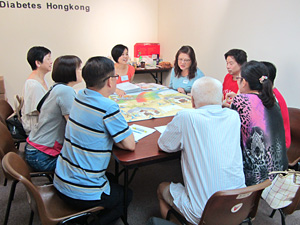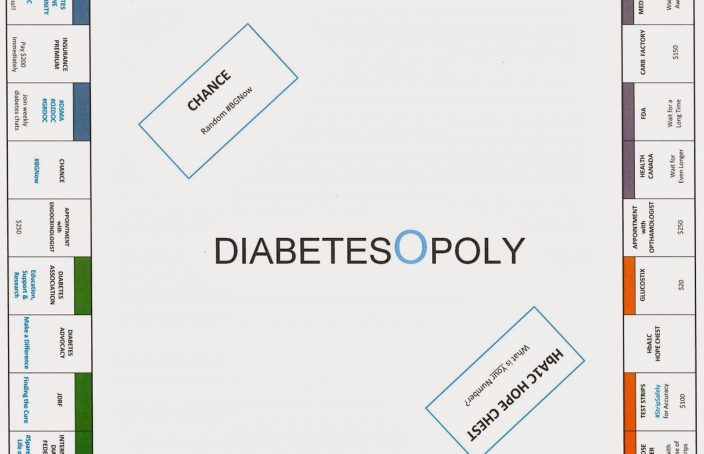People digest diabetes education in different ways. Some prefer human interaction; some prefer reading. And over the years, attempts have even been made to develop diabetes learning across a different platform: board games.
Even the most distracted children, rebellious teenagers and exhausted parents enjoy coming together to play board games. But, as evidenced by a distinct lack of mainstream success, diabetes has proven a tough, unsalted nut to crack in creators’ bids to garner widespread interactive recognition.
Personally, I’d be thrilled if the NHS was to trial a diabetes board game. As a child, I found it hard to take in an abundance of medical information, but I loved board games; an educational, fun combination of the two would have been ideal.
It seems that, while several attempts have been made to create a diabetes board game in the last 15-20 years, they have all suffered a brevity of existence.
But that isn’t to say there weren’t some excellent efforts along the way.

One of the first major attempts of note was in 2000 when Paul Tracey, president of medical education agency Tracey Associates, developed Learning About Diabetes: A Game for Healthy Living – an interactive education tool to help people learn about type 1 diabetes and type 2 diabetes.
The game was created for older children and adults, and boasted 1,000 questions across five topics: blood sugar, exercise, healthy eating, learning about diabetes and preventing other problems.
Users rolled the dice to advance to the ‘YOU WIN’ square, navigating ‘traps’ along the way such as: “You ate too many fatty foods. Go back three spaces” – of course modern research has established that low-fat guidelines from the 1980s were deeply flawed and that eating healthy fats can be beneficial people with diabetes – and the game was touted for its multi-purpose use either at diabetes camps or as a teaching tool for educators.
Tracey introduced the game at the 60th Annual Scientific Sessions of the American Diabetes Association “in response to numerous requests from diabetes educators for a user-friendly, interactive educational tool to help people better understand what diabetes is and the day-to-day issues involved in managing diabetes”.
In 2004, Future Focus followed in a similar vein. As well as differentiating between type 1 and type 2, the roll-and-move trivia game also educated users about friendly foods for people with diabetes.
Future Focus took education further. It explained the role of the pancreas within diabetes development and how obesity is a risk factor for type 2 diabetes. The game, which was reportedly created by two teenagers, was used in hospitals, camps and schools and targeted everyone over the age of six.
Much like Learning About Diabetes, though, Future Focus was limited in its success. But when Japanese scientists utilised a new board game in a 2010 trial, it seemed as if a popularity breakthrough could have been near.

The Diabetes Conversation Map Programme aimed to help diabetes patients understand the winding path of treatment and management. It involved a game that was similar to Monopoly, in which players tackled different tasks as they progressed. Picking up a “diabetes myth card”, for example, that said diabetes is caused by sweet food, required a player to explain whether this was true or not.
Diabetes Hong Kong said the group interaction that occurred as part of the game benefitted many, and in 2014 they launched a campaign called Operation Santa Claus. The campaign featured a diabetes support programme called “Care For You” which utilised the board game to increase diabetes education in Hong Kong.
The programme was expected to involve 200 people, but it was halted due to a lack of funds.
Since then, other attempts have come and gone, including Rick Williams’ Body Breaker game, which tried to make exercise fun for children to reduce their risk of becoming obese. Then, Jamie Naessens created the Monopoly-based spin off Diabetesopoly, but the board was intended as a creation rather than to be distributed as a playable game.
So what would it take for a diabetes board game to become popular in the UK? Could it just be that board games aren’t that popular an activity in today’s technology-rich existence?
I don’t believe that. I believe that children could gain great benefit from a diabetes board game, as could adults, and that while funding is an issue, a little faith in such a product could serve to influence a wide variety of people at a time when rising rates of diabetes are higher than ever before.
What would you like to see in a diabetes board game? Share your thoughts in the comments section below.
Main image: flyingfurballs.blogspot.co.uk




